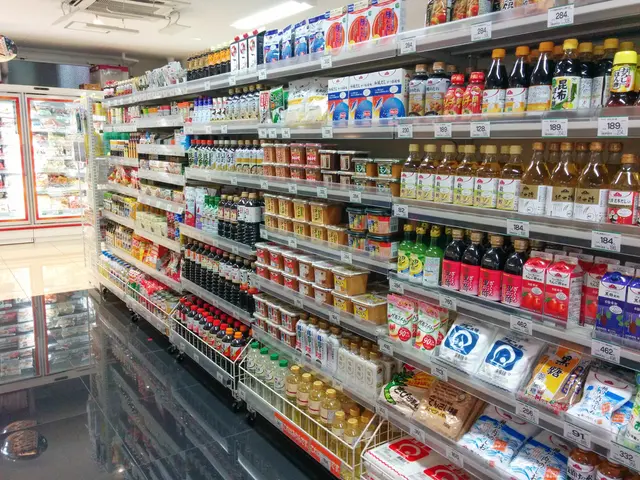Johnson & Johnson Prepares for-$400 Million Increase in Customs Duties, Anticipating Trump's Pharmaceutical Tariffs
Johnson & Johnson, one of the world's largest pharmaceutical companies, is bracing for significant impacts due to proposed tariffs on pharmaceutical imports by President Trump. These tariffs, potentially reaching 150% within a year and rising to 250% eventually, are expected to increase production costs, potentially lead to drug shortages, and result in higher consumer drug prices in the U.S.
The increased costs are a direct result of the tariffs, which will inflate the cost of imported pharmaceutical ingredients and products that companies like Johnson & Johnson rely on. This financial burden could force the company to reconsider its business strategies, potentially leading to shifts in supply chains and investments in U.S. manufacturing capacity.
However, building new plants and shifting supply chains is a complex and costly process that may take years to complete. In the meantime, Johnson & Johnson, like other pharmaceutical companies, will likely bear the near-term cost burdens.
The potential for higher drug prices is another concern. Analysts warn that these tariffs could add billions of dollars in drug costs to Americans, with a 25% tariff previously estimated to add nearly $51 billion per year. A steeper tariff could multiply this effect.
Moreover, the risk of drug shortages is a real possibility. Increased costs and disrupted supply chains might cause shortages or reduced availability of medicines, posing a significant threat to public health.
In response to these challenges, Johnson & Johnson executives have publicly expressed a desire for lower taxes to help offset the costs of the tariffs. CEO Joaquin Duato stated that tax policy, rather than tariffs, is the most effective way to build manufacturing capacity in the U.S.
Industry response to these proposed tariffs has been critical. Pharmaceutical industry groups like PhRMA have criticized the tariffs as "counterproductive," emphasizing that these tariffs could backfire by increasing costs without necessarily improving domestic production capacity rapidly.
Johnson & Johnson is not alone in facing these challenges. Eli Lilly's CEO, David Ricks, suggests that tariffs may lead to reductions in research and development budgets in the U.S., while many drugs imported to the U.S. come from Ireland due to tax incentives. Big Pharma is lobbying the Trump regime for either a slow phase-in or exemptions for pharmaceutical tariffs.
As the situation develops, it is clear that the proposed tariffs pose financial and operational challenges for companies like Johnson & Johnson. The impact on consumers, in terms of higher drug prices and potential drug shortages, remains a significant concern.
[1] New York Times, "Trump's Tariffs on Drugs Could Cost Americans Billions," 202x. [2] CNBC, "Pharma Industry Fights Trump's Proposed Tariffs on Drugs," 202x. [3] Washington Post, "Trump's Tariffs on Pharmaceuticals Could Lead to Drug Shortages, Experts Warn," 202x.
- The tech industry's publications, such as Gizmodo, have started covering the potential impacts of proposed tariffs on pharmaceutical imports, with a focus on the future financial burdens on companies like Johnson & Johnson and the potential rise in drug prices for consumers.
- The future of the pharmaceutical industry, including its relationships with finance and politics, appears to be undergoing significant changes due to these proposed tariffs. Analysts argue that these tariffs could lead to reduced investments in research and development, potentially slowing technological advancements in the industry.
- Despite the complexities and costs associated with shifting supply chains and building new manufacturing plants, Johnson & Johnson and other pharmaceutical companies are exploring these options as a means of mitigating the financial impacts of the proposed tariffs.
- The general news outlets are reporting widespread concerns within the pharmaceutical industry about the potential consequences of these tariffs, including increased costs, possible drug shortages, and threats to public health, as well as the industry's attempts to lobby the government for exemptions or a slow phase-in of the tariffs.





